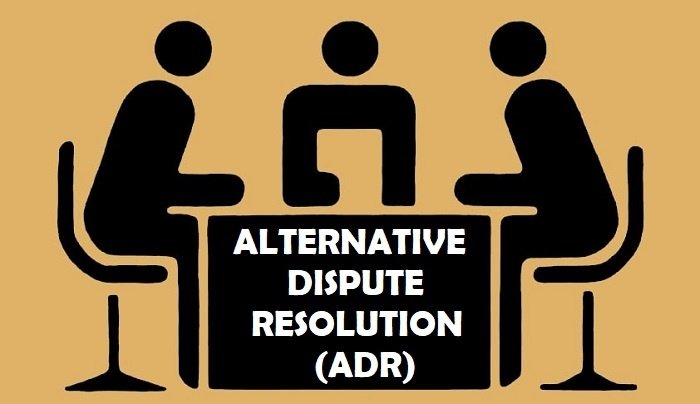The Indian legal system, while robust, can involve lengthy and expensive court proceedings for civil disputes. Fortunately, Alternative Dispute Resolution (ADR) methods offer a faster, more cost-effective way to resolve these conflicts outside of court. At Rajendra Law Office LLP, we understand the complexities of civil litigation but also recognize the advantages of ADR. We can guide you through the various ADR options available and help you choose the most suitable one for your specific situation.
Settling Civil Disputes Amicably: Exploring ADR Options with Rajendra Law Office LLP
What are ADR Methods?
ADR encompasses a range of techniques aimed at resolving disputes without resorting to formal litigation. These methods involve a neutral third party facilitating communication and negotiation between the parties in conflict.
Here are some of the most common ADR methods in India:
- Mediation: A neutral mediator facilitates a discussion between the parties, guiding them towards a mutually agreeable solution. The mediator doesn’t impose a decision but helps the parties explore options and reach a compromise.
- Arbitration: In arbitration, a neutral arbitrator listens to arguments presented by both sides and issues a binding decision that is enforceable in court. Arbitration can be faster and less expensive than litigation but is more formal than mediation.
- Conciliation: Similar to mediation, conciliation involves a neutral third party facilitating dialogue between disputing parties. However, a conciliator may suggest solutions and exert a bit more pressure to reach an agreement compared to a mediator.
- Negotiation: This method involves direct communication between the parties themselves, often with the assistance of their lawyers. Negotiation can be a cost-effective way to resolve disputes, but it requires a willingness from all parties to compromise.
Why Choose Alternative Dispute Resolution (ADR) for your Civil Case?
ADR offers several advantages compared to traditional litigation:
- Faster Resolution: ADR processes can be completed significantly faster than court cases, saving you valuable time and minimizing disruption to your business or personal life.
- Cost-Effective: ADR methods generally involve lower costs compared to litigation, including court fees, lawyer fees, and associated expenses.
- Confidentiality: ADR proceedings are confidential, meaning the details of your dispute are kept private, unlike public court hearings.
- Preserved Relationships: ADR fosters a more collaborative environment, potentially preserving relationships between parties who may need to interact in the future.
- Greater Control: In ADR, you have a greater degree of control over the outcome of the dispute compared to a court case where a judge makes the final decision.
Rajendra Law Office LLP: Your Trusted Partner in Alternative Dispute Resolution (ADR)
Our team at Rajendra Law Office LLP offers comprehensive guidance and support throughout the ADR process:
- Evaluating Your Options: We will carefully assess your case and recommend the most suitable ADR method based on the nature of your dispute, your desired outcome, and the willingness of the other party to participate.
- Negotiation Expertise: Our skilled lawyers can represent you effectively during negotiations, ensuring your interests are protected and advocating for a fair resolution.
- Drafting Agreements: If an agreement is reached through ADR, we can assist you in drafting a clear, concise, and legally binding document outlining the terms of the settlement.
Addressing Criminal Law Matters
It’s important to clarify that Rajendra Law Office LLP specializes in criminal law, not civil disputes. While we can offer guidance on ADR options for civil cases, we cannot represent you in civil matters.
Frequently Asked Questions (FAQs) on Alternative Dispute Resolution (ADR)
Q: Is ADR mandatory for all civil cases in India?
A: No, ADR is not mandatory for all civil cases in India. However, courts may encourage parties to explore ADR options before proceeding with litigation.
Q: What happens if ADR fails to resolve the dispute?
A: If ADR is unsuccessful, you can still pursue your case through the traditional court system.
Q: How do I choose the right lawyer for ADR?
A: Look for a lawyer experienced in ADR and familiar with the specific methods you are considering.
Empowering Informed Decisions
ADR presents a valuable alternative for resolving civil disputes efficiently and amicably. At Rajendra Law Office LLP, we are committed to empowering you with the knowledge and resources necessary to make informed decisions about your legal options.
- Civil Litigation Lawyers in Chennai: Trusted Expert Legal Services
- Navigating Peace: Unveiling the Power of Arbitration Service in Chennai
- Advantages and Disadvantages of Arbitration in Resolving Disputes
- Chennai City Civil Court: Legal Proceedings and Expert Services
- https://legalaffairs.gov.in/
- Affordable Lawyers in Chennai: Quality Legal Services at Your Reach

